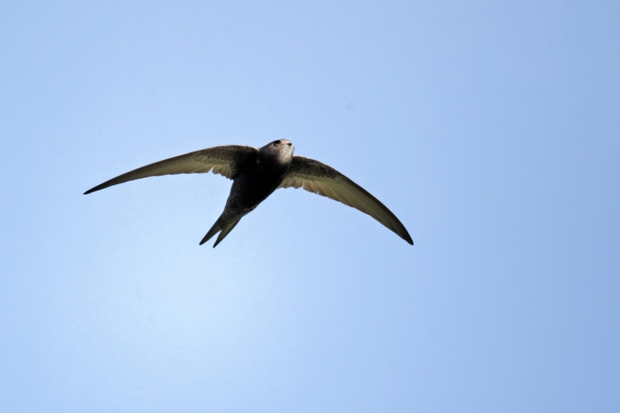Mark Cocker is the naturalist writer of the moment, with birds his special subject. His previous book, Birds and People, was a tour de force, taking the birds of the entire world as its subject. Craig Brown described it as ‘the sort of masterpiece that comes along only once or twice a decade’.
Expectations could not be higher. Claxton is a selection from his journalism for the Guardian and other publications, written since he moved to Claxton village, southeast of Norwich, 12 years ago. The 140 entries are arranged in 12 chronological chapters to form a naturalist’s journal of a Claxton year. Many have been radically revised so that of his eight books this ‘has taken the longest to write’. He regards it as ‘very much more than a collection of journalism’, although journalists would surely deplore the distinction.
That ‘there is nothing truly special’ about Claxton is the point. He opens with a quotation from Henry Thoreau of Walden fame: ‘I wonder that I ever get five miles on my way, the walk is so crowded with events and phenomena.’ Cocker’s mission is to open our eyes to this truth. One of his entries is posted from Greece; it confirms that un-special Claxton proves there is no need of exotic travel to be astonished: ‘To do things routinely, to take the same walk time after time, is not to see the same view over and over.’
In a land blessed with four seasons this is particularly true. Winter is barren of insects, whereas in summer and autumn the contents of his moth trap add a special ‘excitement to moth day (Saturday mornings)’. One of his constant themes is that birds and their eye-catching like are merely the most ‘charismatic product’ of an ecosystem: ‘The real engine room of biodiversity is a blend of the vegetation and the bio-luxuriance of its invertebrate populations. Birds are, if you like, already symbols of landscape.’ There are other insistent themes. How short a time mankind has been on earth compared with the nature we are everywhere destroying; and the terrifying and apparently unstoppable rate of that destruction.
Every book has a key disclosure. Cocker’s comes on 22 March 2009. ‘Recently I told myself that I was going down daily to look for woodcock… But perhaps what I’m really hunting for is words.’ Robert Mitchum the film star said that the best professional compliment he received was that he was ‘rarely caught acting’. Cocker’s weakness is that you all too often catch him ‘writing’. He is a martyr to bland adjectives and strained description. Sometimes this is distasteful (‘vulva-like’), (‘precisely the same shade as an old scab’); repetitive (his otters do a lot of ‘porpoising’); or a cliché (‘meaningful environment’), (swifts like ‘black arrows’). Sometimes it is pure Fotherington-Thomas: ‘Whenever I think of ash trees I think of their deep generosity.’ He praises his editor but it is editing that Claxton lacks.
He is on firmer ground when he sticks to facts. Thousands of grasshopper warblers have been caught and ringed in Britain but only 32 have been re-trapped. There are about 400 micro-species of bramble: ‘By Michaelmas [29 September] the devil is said to render them inedible — by urinating on them.’ Gram for gram, spider silk is stronger than tensile steel.
Several of his views provoke a ‘hear, hear’ of assent. He resents ‘the almost erotic fixation with predator-prey relations on wildlife television’. Modern ‘wildlife watching’ is driven by a ‘consumerist requirement for novelty’. The 40 per cent decline of the swift in Britain over the last decade makes him wish for a ‘eureka moment when we really get it’. But he fears we will ‘continue in our unending, self-referential cycle to the drowning cry of “double-dip recession”, “quantitative-easing”, “economic growth”’, when ‘we should recall that our own little dance consumes every other living thing around us’.
His breadth of interest is indicated by a 36-page postscript of the ‘Claxton Parish Species List’. And one can forgive anything of someone who so enjoys an early winter leaf fight.
Available from the Spectator Bookshop, £12.99 Tel: 08430 600033






Comments